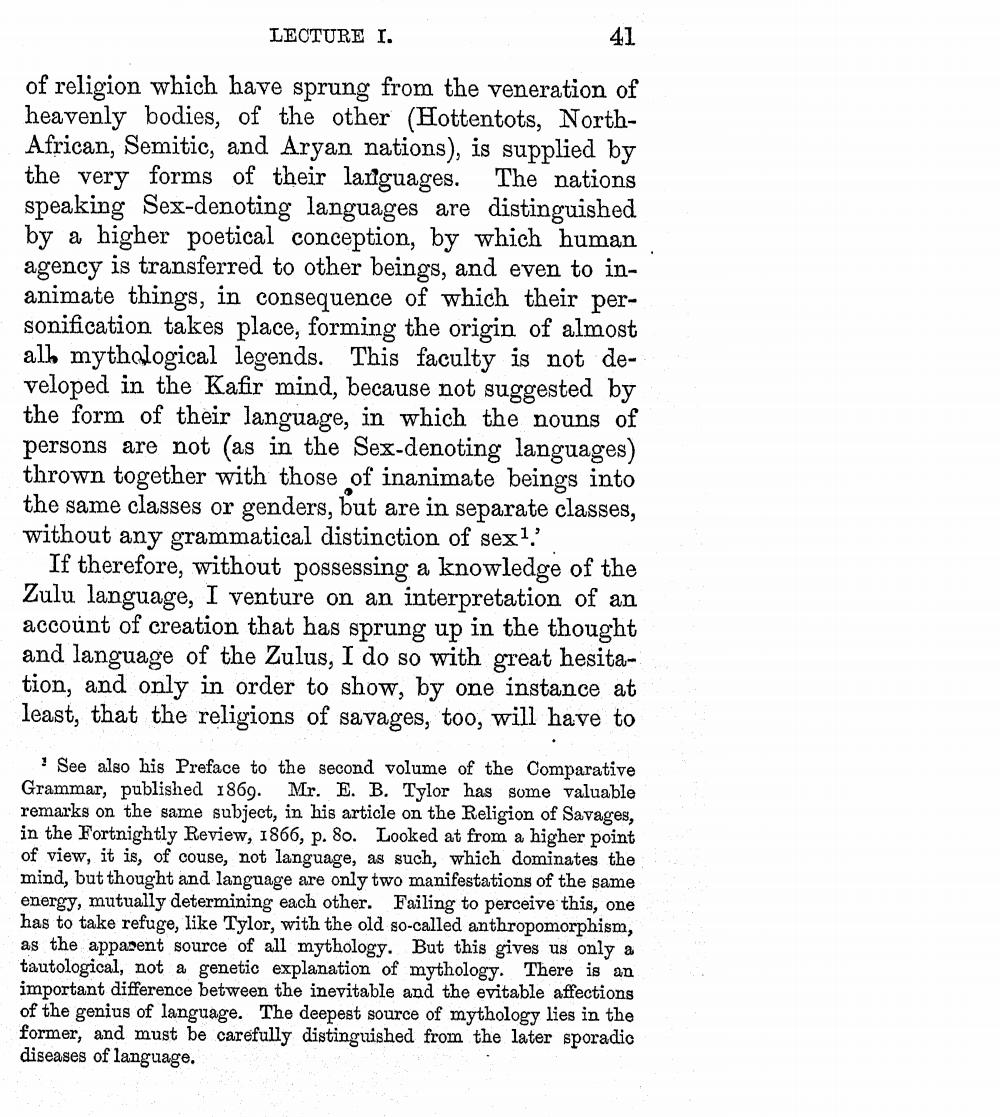________________
LECTURE I.
41
of religion which have sprung from the veneration of heavenly bodies, of the other (Hottentots, NorthAfrican, Semitic, and Aryan nations), is supplied by the very forms of their languages. The nations speaking Sex-denoting languages are distinguished by a higher poetical conception, by which human agency is transferred to other beings, and even to inanimate things, in consequence of which their personification takes place, forming the origin of almost albo mythological legends. This faculty is not developed in the Kafir mind, because not suggested by the form of their language, in which the nouns of persons are not as in the Sex-denoting languages) thrown together with those of inanimate beings into the same classes or genders, but are in separate classes, without any grammatical distinction of sex1
If therefore, without possessing a knowledge of the Zulu language, I venture on an interpretation of an account of creation that has sprung up in the thought and language of the Zulus, I do so with great hesitation, and only in order to show, by one instance at least, that the religions of savages, too, will have to
See also his Preface to the second volume of the Comparative Grammar, published 1869. Mr. E. B. Tylor has some valuable remarks on the same subject, in his article on the Religion of Savages, in the Fortnightly Review, 1866, p. 8o. Looked at from a higher point of view, it is, of couse, not language, as such, which dominates the mind, but thought and language are only two manifestations of the same energy, mutually determining each other. Failing to perceive this, one has to take refuge, like Tylor, with the old so-called anthropomorphism, as the apparent source of all mythology. But this gives us only a tautological, not a genetic explanation of mythology. There is an important difference between the inevitable and the evitable affections of the genius of language. The deepest source of mythology lies in the former, and must be carefully distinguished from the later sporadic diseases of language.




